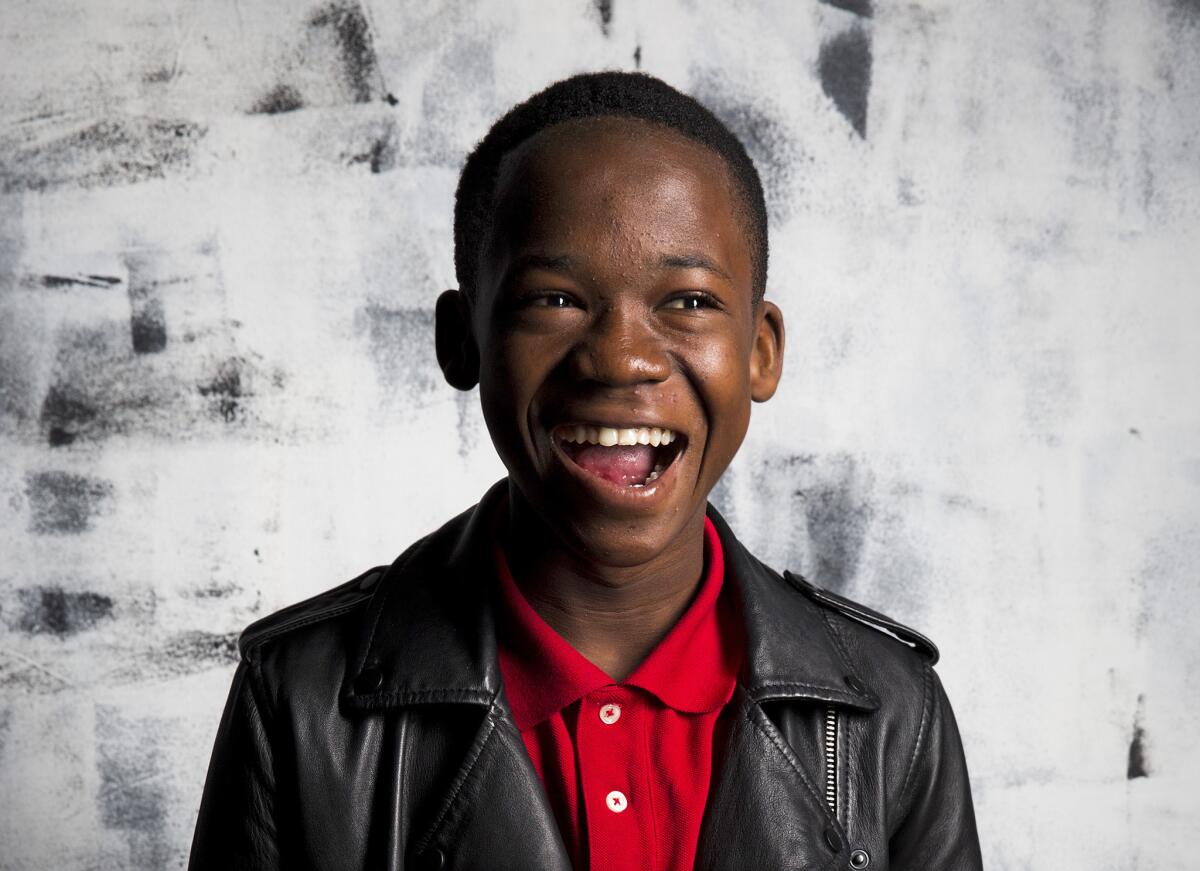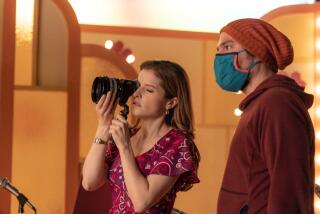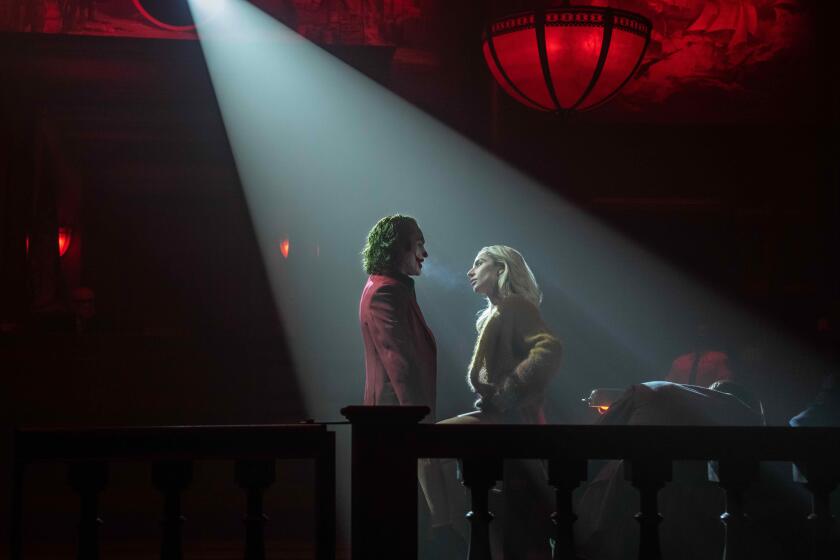‘Beasts of No Nation’ teen actor Abraham Attah praised for brutal role as a child soldier
TELLURIDE, Colo. — Abraham Attah finds it hard to watch his first movie, “Beasts of No Nation,” a harrowing tale of a child soldier in a fictional, war-torn West African country.
“It looks real,” said the 15-year-old Ghanian actor, whose sensitive performance as a boy named Agu has been one of the most talked about of the fall film festival season, earning him the Mastrello Mastroianni Award for Best Young Actor at the Venice Film Festival. “If I’m watching it, sometimes I cry. If I’m watching it and I hear what I say, I feel sad.”
Written and directed by Cary Joji Fukunaga, based on the 2005 novel by Nigerian author Uzodinma Iweala, “Beasts of No Nation” follows Agu as a civil war interrupts his happy boyhood, tearing apart his family and leading him to join an army of young soldiers under a charismatic commandant played by Idris Elba.
SIGN UP for the free Indie Focus movies newsletter >>
Shot in the Ghanian jungle with mostly first-time actors, the film, which premieres in theaters and on Netflix on Friday, shows the brutality of warfare through the eyes of a child. In one terrifying scene, the commandant forces Agu to wield a machete for the first time; in another, he abuses his role as a father figure.
Attah has been traveling the globe with a guardian to promote the film and has been greeted with praise wherever he goes. In an interview at the Telluride Film Festival in September, the lanky young actor revealed a boyish, toothy grin. He was most interested in the mountain town’s impressive skateboard parks and got a good laugh out of learning what the phrase “playing hooky” meant. He said he misses his parents, who are home in Accra, where his mother works in a market and his father at the port.
When he set out to make “Beasts,” Fukunaga had a daunting casting challenge. Making the film meant finding an emotionally mature actor to play Agu, as well as dozens of convincingly hardened local boys to populate the child army.
Early casting announcements the filmmakers sent out on TV and radio attracted mainly wealthy families, whose children didn’t exhibit the qualities Fukunaga wanted for the battalion — “There were no survival skills you really need for this role,” he said.
Casting director Harrison Nesbit visited schools, orphanages and sports fields, and he ultimately found Attah on a soccer field in Accra, playing with some older boys. Attah has a more stable family life than some of his co-stars, who were living in the streets when they were cast.
“Many of the kids were from pretty rough areas in Accra,” Fukunaga said. “A lot of these kids were essentially the same kinds of kids you would have found in Liberia or Sierra Leone during the war. There was just a distance there that is real.”
Fukunaga has some experience with working with child actors from his 2009 drama, “Sin Nombre,” which followed a young boy trying to escape the violence of gang life in Mexico. Among the qualities he was looking for in Agu was the discipline to make it through what would be a grueling shoot even for an adult. Together with Nesbitt and an acting coach, Fukunaga planned workshops to teach the boys about being on camera and to get to know them better.
“Abraham was one of the more responsible kids there, keeping the other kids in check, telling them to pay attention or explaining things,” Fukunaga said. “He’s a serious guy and he liked telling people what to do.”
The hardest part for Attah was playing the carefree scenes in Agu’s life, before the war arrives, Fukunaga said.
“Abraham had life experiences that went beyond his years,” Fukunaga said. “The challenging part was to add the brightness, the playfulness in the beginning.”
On set, Elba said he was conscious of the vulnerabilities of a young actor in such an intense role.

‘Beasts of No Nation’ first-time teen actor Abraham Attah praised for a brutal role.
“You want to make sure you protect that kid,” Elba said. “The world is so magnified. I’m in a costume holding guns, but we’re asking you to be really cool about it. As an actor, Abraham just throws himself into it, which is what good actors do. But you could tell that it’s a lot to take on. It’s a lot to take on as an adult, let alone a kid who has never done it before.”
On the day of the machete scene, Attah said he rehearsed in his hotel room with his roommate.
“The first time we actually saw the reality of it was when we shot it,” Elba said of the machete scene. “It was real. Abraham was in that moment. It was a very magic moment where it happens and the actors are so engaged that you just keep rolling.”
“Beasts of No Nation” is the first fictional feature produced and distributed by Netflix, and Fukunaga will rely on the streaming service to help his story find a broader audience than it might if it only played in arthouses.
For Attah, making and promoting the film has represented an opportunity to learn and travel. For audiences, Elba believes, the lessons of Attah’s performance may go much deeper.
“When you hear about certain wars, this was an opportunity to humanize them,” said Elba, whose father hails from Sierra Leone and mother from Ghana. “What war it is isn’t important. Where in Africa it is isn’t important. We could give you facts and figures but ... the point is: Do you understand the psychological effects of war on a kid?”
------------
‘Beasts of No Nation’
MPAA rating: None
Running time: 2 hours, 16 minutes
Playing: Landmark, West L.A. Also on Netflix
More to Read
Only good movies
Get the Indie Focus newsletter, Mark Olsen's weekly guide to the world of cinema.
You may occasionally receive promotional content from the Los Angeles Times.











